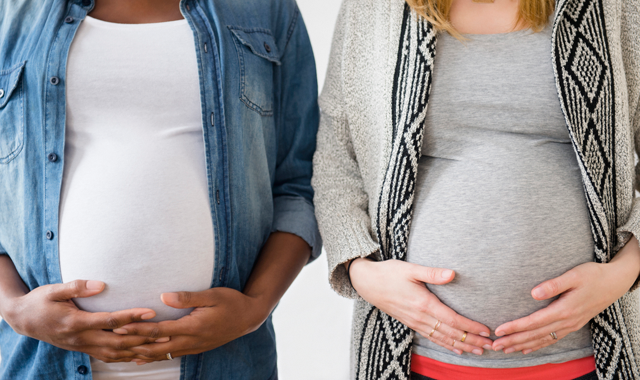Is periodontitis causing infertility in young women?
A new study has discovered a link between the presence of a common periodontal pathogen and difficulty conceiving.

According to a study carried out at the University of Helsinki, a common periodontal pathogen may delay conception in young women. This finding is novel: previous studies have shown that periodontal diseases may be a risk for general health, but no data on the influence of periodontal bacteria on conception or becoming pregnant have been available.
"Our results encourage young women of fertile age to take care of their oral health and attend periodontal evaluations regularly," says periodontist and researcher Susanna Paju of the University of Helsinki.
Study population comprised 256 healthy non-pregnant women (mean age 29.2 years, range 19 to 42) who had discontinued contraception in order to become pregnant. They were enrolled from the general community from Southern Finland. Clinical oral and gynecological examinations were performed. Detection of major periodontal pathogens in saliva and analysis of serum and saliva antibodies against major periodontal pathogens as well as a vaginal swab for the diagnosis of bacterial vaginosis at baseline were carried out. Subjects were followed-up to establish whether they did or did not become pregnant during the observation period of 12 months.
Porphyromonas gingivalis, a bacterium associated with periodontal diseases, was significantly more frequently detected in the saliva among women who did not become pregnant during the one-year follow-up period than among those who did. The levels of salivary and serum antibodies against this pathogen were also significantly higher in women who did not become pregnant. Statistical analysis showed that the finding was independent of other risk factors contributing to conception, such as age, current smoking, socioeconomic status, bacterial vaginosis, previous deliveries, or clinical periodontal disease. Women who had P. gingivalis in the saliva and higher saliva or serum antibody concentrations against this bacterium had a 3-fold hazard for not becoming pregnant compared to their counterparts. Increased hazard was nearly to 4-fold if more than one of these qualities and clinical signs of periodontitis were present.
“Our study does not answer the question on possible reasons for infertility but it shows that periodontal bacteria may have a systemic effect even in lower amounts, and even before clear clinical signs of gum disease can be seen”, says Dr. Paju. “More studies are needed to explain the mechanisms behind this association.”
The study was carried out at the Department of Oral and Maxillofacial Diseases at the University of Helsinki, in co-operation with the Department of Obstetrics and Gynecology at Helsinki University Hospital, Finland. Results were published in the latest issue of the Journal of Oral Microbiology.
Infertility is a major concern, and increasing healthcare resources are needed for infertility treatments. More attention should be paid to the potential effects of common periodontal diseases on general health. Young women are encouraged to take care of their oral health and maintain good oral hygiene also when they are planning pregnancy, suggests Dr. Paju.
Periodontitis is a bacterial inflammation of the tooth-supporting tissue that destroys the tissue fibres and alveolar bone that supports the teeth, and can lead to loss of teeth. Periodontal diseases are prevalent worldwide. Severe chronic periodontitis is the sixth most common medical condition according to the Global Burden of Disease Study 2014.
The study, Porphyromonas gingivalis may interfere with conception in women, was published in the Journal of Oral Microbiology.